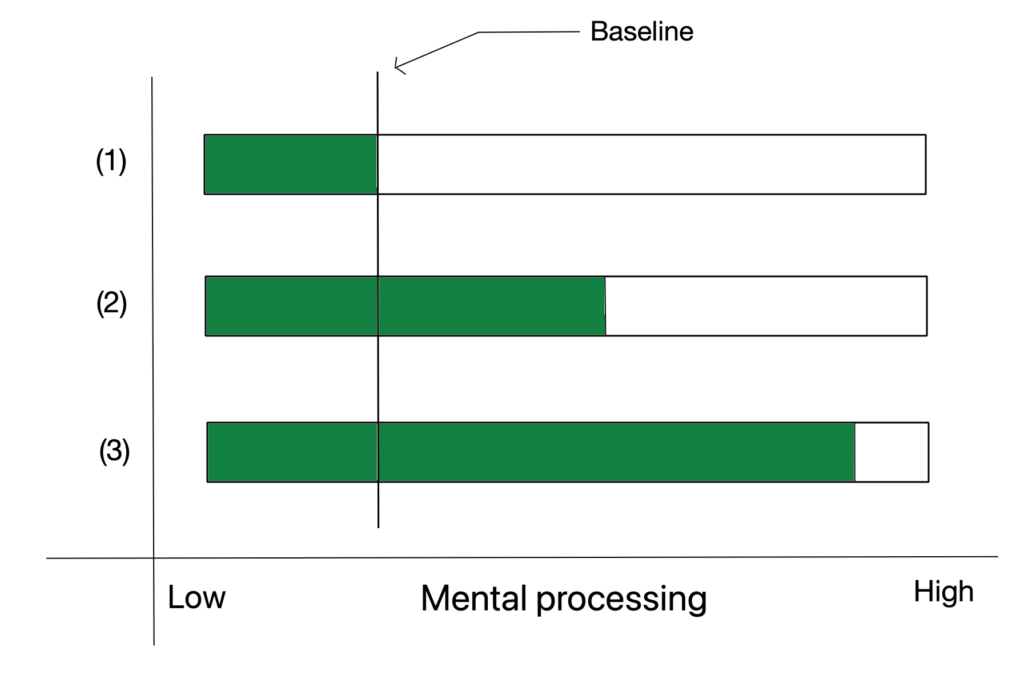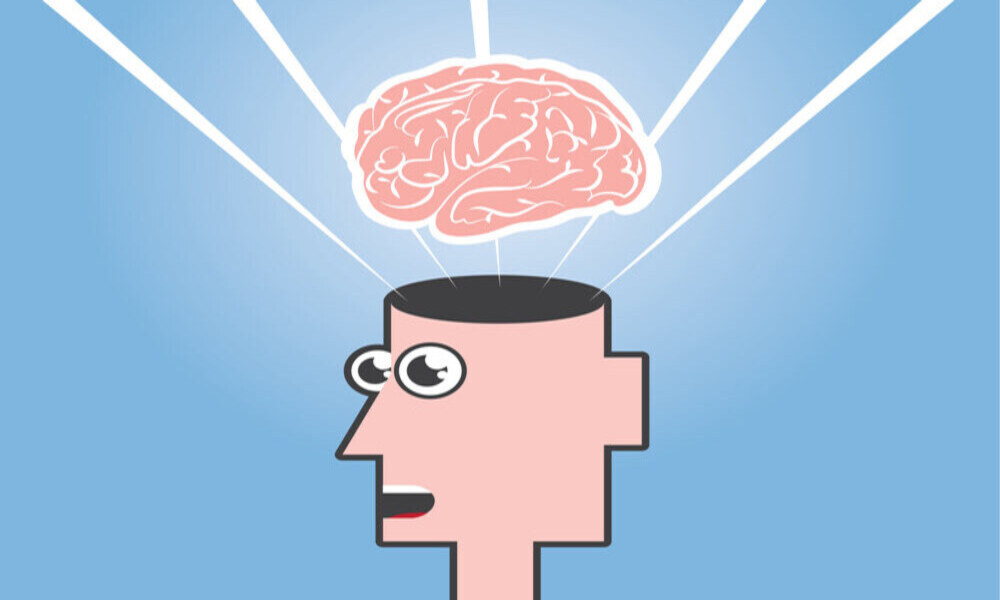“What a terrible thing to have lost one’s mind. Or not to have a mind at all.”
– Dan Quayle
We’ve all experienced times when we felt like we were losing our minds. This is a crazy psychological phenomenon that makes you think that you’re going crazy. Of course, it’s unlikely that you’re actually going crazy, but you certainly feel like you are. In this article, we’ll discuss what causes this feeling and how to cope with it.
Having your mind
To understand what makes you feel like you’ve lost your mind, you must first understand what makes you feel like you have one. Think of the instances where you don’t say you’re losing your mind. How are these different from when you say you are losing your mind?
The mind evolved to process information from our environment to make sense of it and help us navigate life. What goes on in your mind often reflects what’s happening in your environment. If nothing much is happening in your environment, your mental processing is at baseline levels simply because there’s nothing much to process.
Your mind has a limited capacity to process information, and very limited information can be processed at a given time.1Sweller, J. (2011). Cognitive load theory. In Psychology of learning and motivation (Vol. 55, pp. 37-76). Academic Press. So, when nothing much is going on in your life, and your mental processing is at baseline levels, you feel like you have a mind. You feel like you have mental resources to process or deal with whatever life throws at you.
Not having your mind
As soon as things start to happen in your life, your mental processing gets raised above baseline levels. For instance, you read a new piece of information like this article. Your mind has to process this information and store it in your memory. Your mental processing rises above baseline levels for a while and then returns back to baseline levels.
Some life events, however, raise your mental processing too much above baseline levels. For instance, having to solve a complex problem. Your mind is like a container. It can only hold so much information at a given time. Complex problems significantly raise your level of processing because they have many moving parts. Facing many small problems back to back can also fill up your container and have the same effect.
When your container is filled with things to process, you have little space left to process other things. When you don’t have mental resources left to process additional things, you feel like you’re losing your mind. This feeling of having your container full or nearly full is destabilizing, disorienting, confusing, and overwhelming.

Positive vs. negative mental overload
When people talk about losing their minds, it’s usually a complaint. It has negative connotations. Negative mental overload can be caused by things like:
- Stress
- Trauma
- Anxiety2Drioli-Phillips, P. G., Oxlad, M., Feo, R., Scholz, B., & LeCouteur, A. (2020). “I feel abused by my own mind”: Themes of control in men’s online accounts of living with anxiety. Qualitative Health Research, 30(13), 2118-2131.
- Depression3Brewin, C. R. (1996). Cognitive processing of adverse experiences. International Review of Psychiatry, 8(4), 333-339.
People can also positively lose their minds. For instance, when someone says something ‘blew’ their mind. Things that blow your mind raise your mental processing above baseline levels. Your mind gets pushed beyond its comfort zone but in a way that feels good. For example:
- Watching a thriller with twists and turns
- Reading a mind-blowing scientific fact
- Reflecting on a wise quote
- Listening to great music
- Obsessing over someone you like
You could argue that obsessing over someone you like is negative because it can have negative consequences. But it does feel good. When you’re obsessed with someone, your mind is continuously processing them. Your container gets filled with them. This is why people forget about everything else, including themselves, when they fall for someone.
Many song lyrics go something like: “Girl, you’re making me lose my mind.”
Losing your mind = losing yourself
Another way to look at the phenomenon of ‘losing your mind’ is to look at it from the lens of identity. Your identity, beliefs, values, and opinions make you who you are. These are the things that make your mind your mind. If you lose these things, you get a feeling that you’re losing your mind.
For instance, if ‘freedom’ is your core value, then getting addicted to something- anything- will make you feel trapped. Since you’re doing something that’s not in line with your core identity, you feel like you’re losing your mind. You feel disconnected from yourself. Your relationship with yourself suffers when you don’t meet your own needs.
Coping
Drill it into your head that your mind is a container, not a black hole. You can only process so much information at any given time without going crazy. Information overload has been normalized in modern times, but we’re not equipped to handle so much information. Free your mind. Make notes. Simplify your life. Only pay attention to information that is relevant to you and cut out everything else.
If things have already gotten out of hand and you’re on the brink of losing your mind, slow down. Give yourself time and space to process the things you want to process. Journalling can be effective. When you write things down, you unload your container and use your mind to work with the information rather than store it unnecessarily.
While stressful events are unpleasant, they can be good opportunities to resolve problems. They can be growth opportunities. If you have nothing going on in your life, you’ll have zero stress. Is that a life worth living?
Lastly, it’s time to change your ways if you’ve been doing things out of alignment with your identity and values. Once you’ve understood who you are and what makes you tick, you must stick with it. That’s not to say you can’t change your behaviors. You can, but they shouldn’t go against the core of who you are.

